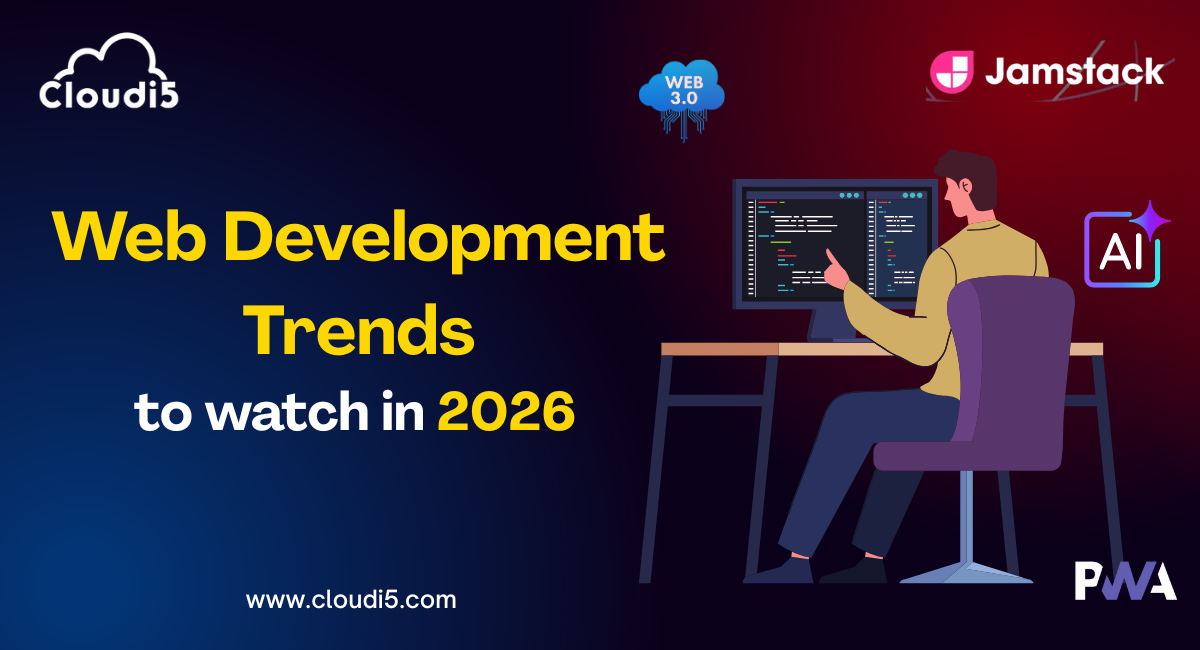
How To Become A Crypto Web Developer?
Ever imagined building the next Bitcoin or Ethereum? Or maybe creating a game-changing decentralized app (dApp) that completely transforms finance, gaming, or social media? If you're excited by the fast-moving, futuristic world of cryptocurrency and blockchain, then becoming a Crypto Web Developer could be your ultimate breakthrough. Whether it's developing the next big DeFi platform or building smart contracts for NFTs, this is where tech innovation meets freedom. You’re in the right blog—read on, and you’ll have the roadmap to becoming a successful crypto developer.
Understanding Cryptocurrency and Blockchain
Cryptocurrency: A Digital Asset
Cryptocurrency is a digital asset that uses cryptography for security. It has changed how we think about money. Unlike traditional currencies, cryptocurrencies are decentralized, meaning they operate independently of banks or governments. This decentralization helps ensure transparency, security, and protection against censorship.
Blockchain: The Technology Behind Cryptocurrencies
Blockchain is the technology that supports cryptocurrencies. It’s a system that records transactions across many computers, creating a secure and clear database. Each transaction is verified and added to a block, which links to previous blocks, forming a chain of blocks.
The Role of Web Development in the Crypto Ecosystem
Web developers are key players in the crypto world. They create the tools and platforms that allow users to interact with cryptocurrencies and blockchain applications. Here are some important areas where web development is essential:
- Decentralized Applications (dApps): Web developers build dApps that run on blockchain networks, providing various services like decentralized finance (DeFi), gaming, and social media.
- Crypto Wallets: Wallets are digital storage spaces for cryptocurrencies. Developers create secure and easy-to-use wallets that let users manage their funds.
- Crypto Exchanges: Exchanges are platforms for trading cryptocurrencies. Web developers design and build these platforms, enabling users to buy, sell, and trade different cryptocurrencies.
Essential Skills for a Crypto Web Developer
Web Development Fundamentals
A strong foundation in web development is crucial for creating crypto-related applications. This includes:
- HTML: The basic structure and layout of web pages.
- CSS: The style and appearance of web pages.
- JavaScript: A programming language used for adding interactivity and dynamic content to websites.
Blockchain Knowledge
Understanding how blockchain technology works is key for crypto web development. This includes:
- Blockchain Architecture: How blockchain networks are set up and function.
- Consensus Mechanisms: The methods that validate transactions and ensure the blockchain is secure (like Proof of Work and Proof of Stake).
- Smart Contracts: Self-executing contracts with terms written directly into code, operating on a blockchain.
- Cryptographic Concepts: Basic ideas in cryptography, such as digital signatures and how they secure transactions.
Cryptography
Cryptographic techniques are essential for the security of blockchain networks and cryptocurrencies. A crypto web developer should understand:
- Encryption and Decryption: Methods for encoding and decoding data to keep it safe.
- Digital Signatures: Ways to verify the authenticity and integrity of data.
- Hash Functions: Creating unique digital fingerprints of data for security.
Smart Contracts
Smart contracts are programs that run on a blockchain. Solidity is a popular language for writing these contracts on the Ethereum network. A crypto web developer should know about:
- Solidity Programming: The basics of syntax, data types, and control flow in Solidity.
- Smart Contract Development: How to write and deploy smart contracts on a blockchain.
DeFi and dApps
Decentralized finance (DeFi) and decentralized applications (dApps) are expanding areas in the crypto world. A crypto web developer should be familiar with:
- DeFi Concepts: Understanding various DeFi protocols and applications, like lending, borrowing, and trading.
- dApp Development: Building dApps on blockchain platforms using tools like Truffle or Hardhat.
By mastering these essential skills, crypto web developers can effectively create and launch innovative applications on blockchain networks.
Programming Languages and Tools You’ll Need
Solidity
- What It Is: The main language for writing smart contracts on the Ethereum blockchain.
- Key Points: Learn the basics of Solidity syntax, data types, and control flow.
- Goal: Understand how to create and deploy smart contracts using Solidity.
Rust
- What It Is: A systems programming language that’s becoming popular in the blockchain world.
- Use: Ideal for developing blockchain nodes and infrastructure.
- When to Learn: If you want to work on blockchains like Solana or Polkadot, consider learning Rust.
JavaScript Frameworks
- What They Are: Frameworks like React and Next.js are important for building the front end of crypto applications.
- Purpose: Use them to create user interfaces for decentralized applications (dApps) and other crypto-related projects.
Web3.js & Ethers.js
- What They Are: Libraries that provide JavaScript APIs to interact with blockchain networks.
- Use: These libraries help you connect to blockchains, send transactions, and retrieve data.
Truffle and Hardhat
- What They Are: Development environments that make it easier to build, test, and deploy smart contracts.
- Features: They offer tools for compiling code, testing, and deploying your projects.
Building Your First Crypto Project
Choosing a Project Idea
- Start Simple: Pick a project that matches your interests and skills.
- Ideas: Consider building a decentralized application (dApp) or a token contract.
- Inspiration: Look at existing projects to spark ideas.
Setting Up a Development Environment
- Tools: Install Node.js, npm, and a code editor (like Visual Studio Code).
- Blockchain Setup: Use Truffle or Hardhat to set up your development environment.
Coding the Project
- Write Code: Create the Solidity code for your smart contract.
- Front-End Development: Use JavaScript frameworks to build the user interface.
- Interact with Blockchain: Use Web3.js or Ethers.js to connect your app to the blockchain.
Testing and Debugging
- Thorough Testing: Test your project to make sure it works correctly.
- Use Testing Tools: Utilize the testing frameworks available in Truffle or Hardhat.
- Fix Issues: Debug any problems that come up.
Deploying to a Testnet or Mainnet
- Testnet Deployment: First, deploy your project to a testnet (a simulated blockchain) to see how it works in a real environment.
- Mainnet Deployment: Once you’re happy with it, deploy to the mainnet (the real blockchain).
- Useful Tools: Consider using Infura or Alchemy to help you interact with the mainnet.
By following these steps, you'll be well on your way to building your first crypto project!
Steps to Become a Crypto Web Developer
Step 1: Learn Web Development Basics
- Master HTML, CSS, and JavaScript: These are the core building blocks of web development.
- Learn a JavaScript Framework: Frameworks like React, Angular, or Vue.js can make front-end development easier.
Step 2: Understand Blockchain Technology
- Study Blockchain Concepts: Learn about distributed ledgers, how consensus works (like Proof of Work and Proof of Stake), and smart contracts.
- Explore Blockchain Platforms: Get to know the architecture and features of platforms like Ethereum, Bitcoin, and Solana.
Step 3: Master Smart Contracts
- Learn Solidity: This is the main language for writing smart contracts on Ethereum.
- Practice Writing and Deploying Smart Contracts: Use tools like Truffle or Hardhat to develop, test, and deploy your smart contracts.
Step 4: Dive into DeFi and dApps
- Understand DeFi Concepts: Learn about decentralized finance protocols like lending, borrowing, and trading.
- Build dApps: Use your blockchain and smart contract skills to create decentralized applications.
Step 5: Work on Projects
- Start Building Projects: Practice your skills by creating dApps, crypto wallets, or NFT platforms.
- Contribute to Open-Source Projects: Work with other developers to learn from their experiences.
Step 6: Stay Updated
- Follow Crypto Trends: Keep up with the latest news and developments in the crypto world.
- Participate in the Community: Join online forums, attend conferences, and network with other developers.
Networking and Building a Portfolio
- Join Crypto Communities: Connect with other developers and share experiences.
- Contribute to Open-Source Projects: Show off your skills and build your reputation.
- Participate in Hackathons: Demonstrate your abilities and meet potential employers.
- Create a GitHub Profile: Showcase your projects to attract attention from collaborators and employers.
By following these steps and continuously learning and practicing, you can become a skilled crypto web developer and contribute to the exciting and rapidly growing blockchain industry!
Staying Updated with Crypto Trends
- Follow crypto news and blogs: Stay informed about the latest developments, trends, and innovations in the crypto space.
- Attend conferences and meetups: Network with other developers, learn from experts, and discover new opportunities.
- Experiment with new technologies: Explore emerging blockchain platforms, tools, and programming languages.
Conclusion
In conclusion, becoming a crypto web developer is an exciting adventure that can lead to great opportunities in the blockchain world. By learning the basics of web development, understanding how blockchain works, and getting to know smart contracts and decentralized apps, you can set yourself up for success in this fast-growing field.
As you build your skills, focus on hands-on projects, contribute to open-source work, and connect with the crypto community. Stay updated on the latest trends and keep learning, and you'll discover many new chances to grow.
Get ready to make your mark in tech! Stay tuned for more engaging blogs about crypto and blockchain, and keep exploring this fascinating world!
Trusted By












Leave Comments